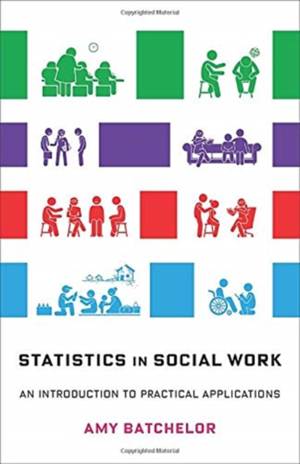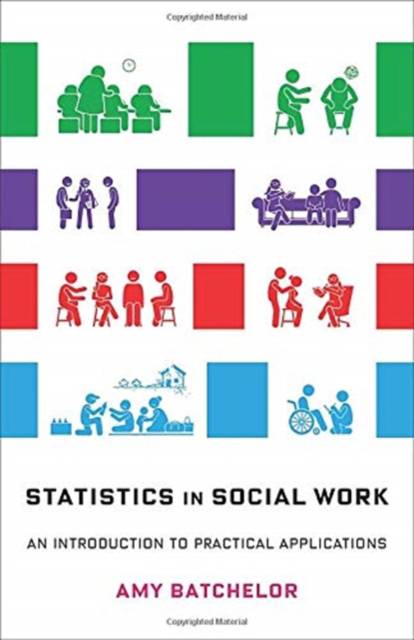
Bedankt voor het vertrouwen het afgelopen jaar! Om jou te bedanken bieden we GRATIS verzending (in België) aan op alles gedurende de hele maand januari.
- Afhalen na 1 uur in een winkel met voorraad
- In januari gratis thuislevering in België
- Ruim aanbod met 7 miljoen producten
Bedankt voor het vertrouwen het afgelopen jaar! Om jou te bedanken bieden we GRATIS verzending (in België) aan op alles gedurende de hele maand januari.
- Afhalen na 1 uur in een winkel met voorraad
- In januari gratis thuislevering in België
- Ruim aanbod met 7 miljoen producten
Zoeken
Statistics in Social Work
An Introduction to Practical Applications
Amy Batchelor
Hardcover | Engels
€ 152,95
+ 305 punten
Uitvoering
Omschrijving
Understanding statistical concepts is essential for social work professionals. It is key to understanding research and reaching evidence-based decisions in your own practice--but that is only the beginning. If you understand statistics, you can determine the best interventions for your clients. You can use new tools to monitor and evaluate the progress of your client or team. You can recognize biased systems masked by complex models and the appearance of scientific neutrality. For social workers, statistics are not just math, they are a critical practice tool. This concise and approachable introduction to statistics limits its coverage to the concepts most relevant to social workers. Statistics in Social Work guides students through concepts and procedures from descriptive statistics and correlation to hypothesis testing and inferential statistics. Besides presenting key concepts, it focuses on real-world examples that students will encounter in a social work practice. Using concrete illustrations from a variety of potential concentrations and populations, Amy Batchelor creates clear connections between theory and practice--and demonstrates the important contributions statistics can make to evidence-based and rigorous social work practice.
Specificaties
Betrokkenen
- Auteur(s):
- Uitgeverij:
Inhoud
- Aantal bladzijden:
- 208
- Taal:
- Engels
Eigenschappen
- Productcode (EAN):
- 9780231193269
- Verschijningsdatum:
- 19/11/2019
- Uitvoering:
- Hardcover
- Formaat:
- Genaaid
- Afmetingen:
- 140 mm x 218 mm
- Gewicht:
- 362 g

Alleen bij Standaard Boekhandel
+ 305 punten op je klantenkaart van Standaard Boekhandel
Beoordelingen
We publiceren alleen reviews die voldoen aan de voorwaarden voor reviews. Bekijk onze voorwaarden voor reviews.









